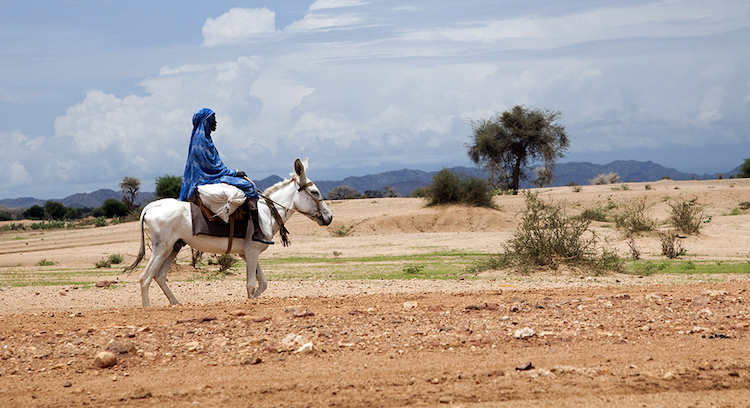
By Santo D. Banerjee
NEW YORK (IDN) – Since the first International Day of Rural Women was observed on October 15, 2008, there is agreement that rural women and girls, including indigenous women, play a critical role in enhancing agricultural and rural development, improving food security and eradicating rural poverty. (P16) ARABIC | JAPANESE TEXT VERSION PDF | THAI
In fact when the UN General Assembly established the new international day in its resolution 62/136 of December 18, 2007, it called for “attaching greater importance to the improvement of the situation of rural women, including indigenous women, in their national, regional and global development strategies”.
The resolution also calls for ensuring that the perspectives of rural women are taken into account and that they participate in the design, implementation, follow-up and evaluation of policies and activities related to emergencies, including natural disasters, humanitarian assistance, peacebuilding and post-conflict reconstruction;
It emphasizes the need to invest in and strengthen efforts to meet the basic needs of rural women through improved availability, access to and use of critical rural infrastructure, such as energy and transport.
Further it calls for addressing the specific health needs of rural women and taking concrete measures to enhance and provide access to the highest attainable standards of health for women in rural areas, including in such areas of sexual and reproductive health as pre- and post-natal health care, emergency obstetric care, family planning information and increasing knowledge, awareness and support for the prevention of sexually transmitted diseases, including HIV/AIDS;
The UN General Assembly also asked the international community to design and implement national policies that promote and protect the enjoyment by rural women and girls of all human rights and fundamental freedoms and create an environment that does not tolerate violations of their rights, including domestic violence, sexual violence and all other forms of gender-based violence;
Other measures proposed by the resolution are: Equal access to basic social services, appropriate social protection/social security measures, equal access to and control of economic resources, specific assistance programmes and advisory services to promote economic skills of rural women in banking, modern trading and financial procedures and providing microcredit and other financial and business services to a greater number of women in rural areas, in particular female-headed households, for their economic empowerment.
The resolution also calls for designing and revising laws to ensure that, where private ownership of land and property exists, rural women are accorded full and equal rights to own land and other property, including through the right to inheritance, and undertaking administrative reforms and other necessary measures to give women the same right as men to credit, capital, appropriate technologies and access to markets and information.
Explaining the logic behind the UN General Assembly’s resolution, UN Women – the United Nations Entity for Gender Equality and the Empowerment of Women – says: “Certainly, rural women are at the front of the battle lines when natural resources and agriculture are threatened.”
For example, a quarter of the total damage and loss resulting from climate-related disasters from 2006 to 2016 was suffered by the agricultural sector in developing countries, and this significantly impacted rural women and girls’ food security and productive potential.
Women are more likely to die during most climate-related disasters and face greater constraints in accessing natural resources like land and water. What’s more, climate change exacerbates existing inequalities, potentially leaving rural women and girls further behind.
“Consequently, one of the most effective ways to achieve progress on the threats posed by climate change is addressing gender inequality,” adds UN Women. Empowered women have greater capacity to respond to climate change; they play important roles in adopting low-carbon technologies, spreading knowledge about climate change, and urging action.
UN Women considers adopting gender-responsive climate policy and programmes and promoting women’s leadership in climate action among the key pieces in reducing the harmful effects of global warming.
Along with other UN and development entities, UN Women recognize the need to empower rural women and girls in the context of climate change. The 2019 Secretary General report (A/74/224) on “Improving the situation of women and girls in rural areas” focuses on climate, and UN Women is implementing multiple programmes to empower women in the face of global warming.
Promoting women’s empowerment through climate resilient agriculture is in fact a mainstay of UN Women’s programmatic activities on sustainable development, and its Joint Programme with Food and Agriculture Organization (FAO), World Food Programme (WFP), and IFAD on Rural Women’s Economic Empowerment prioritizes sustainable livelihoods and rights, aiming, among others, for increased incomes and adoption of climate-resilient agricultural practices. [IDN-InDepthNews – 13 October 2019]
Photo: A woman dressed in blue rides a white donkey through open vast terrain surrounded by mountains. Credit: UN.
IDN is flagship agency of the International Press Syndicate.
www.facebook.com/IDN.GoingDeeper – https://twitter.com/InDepthNews











